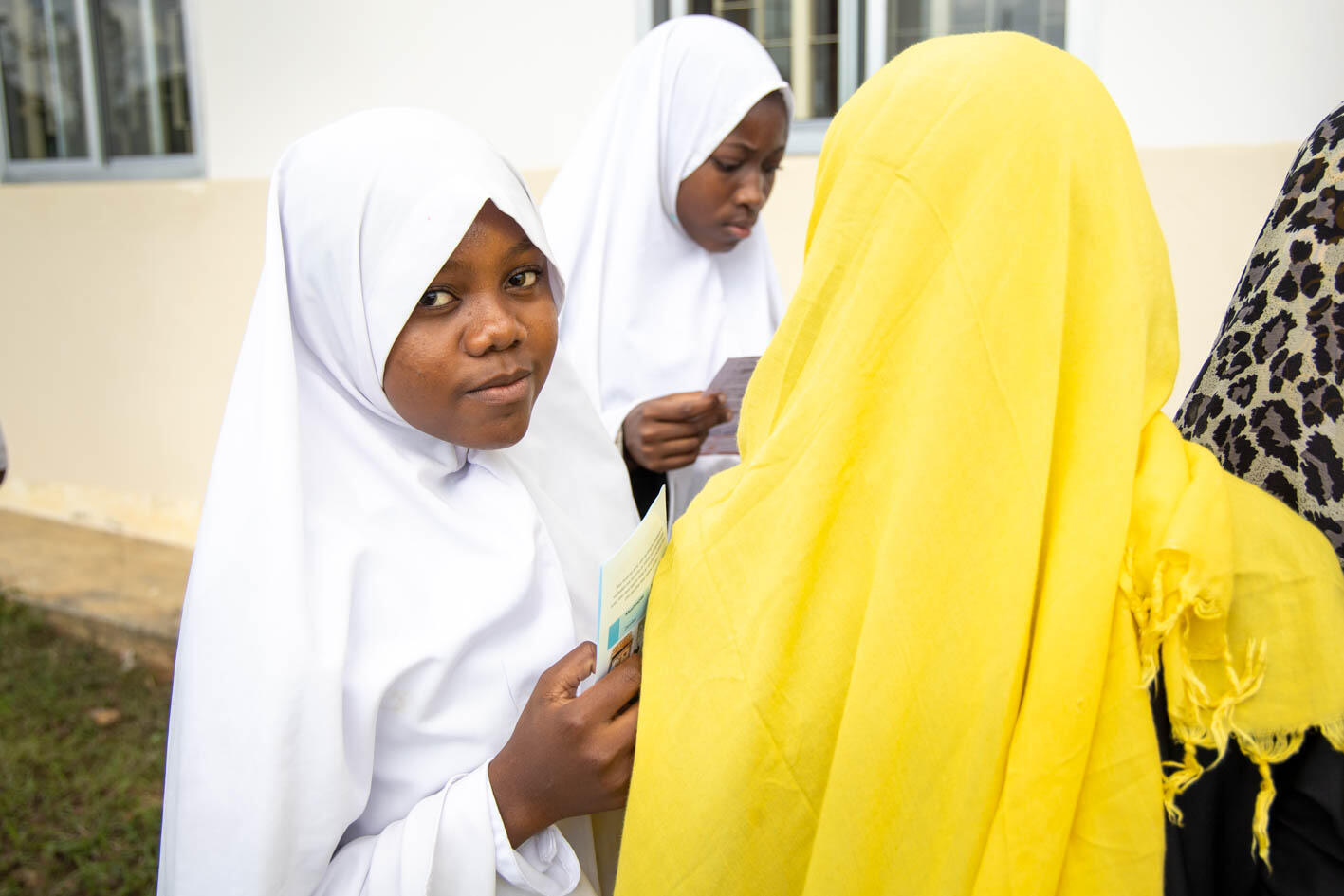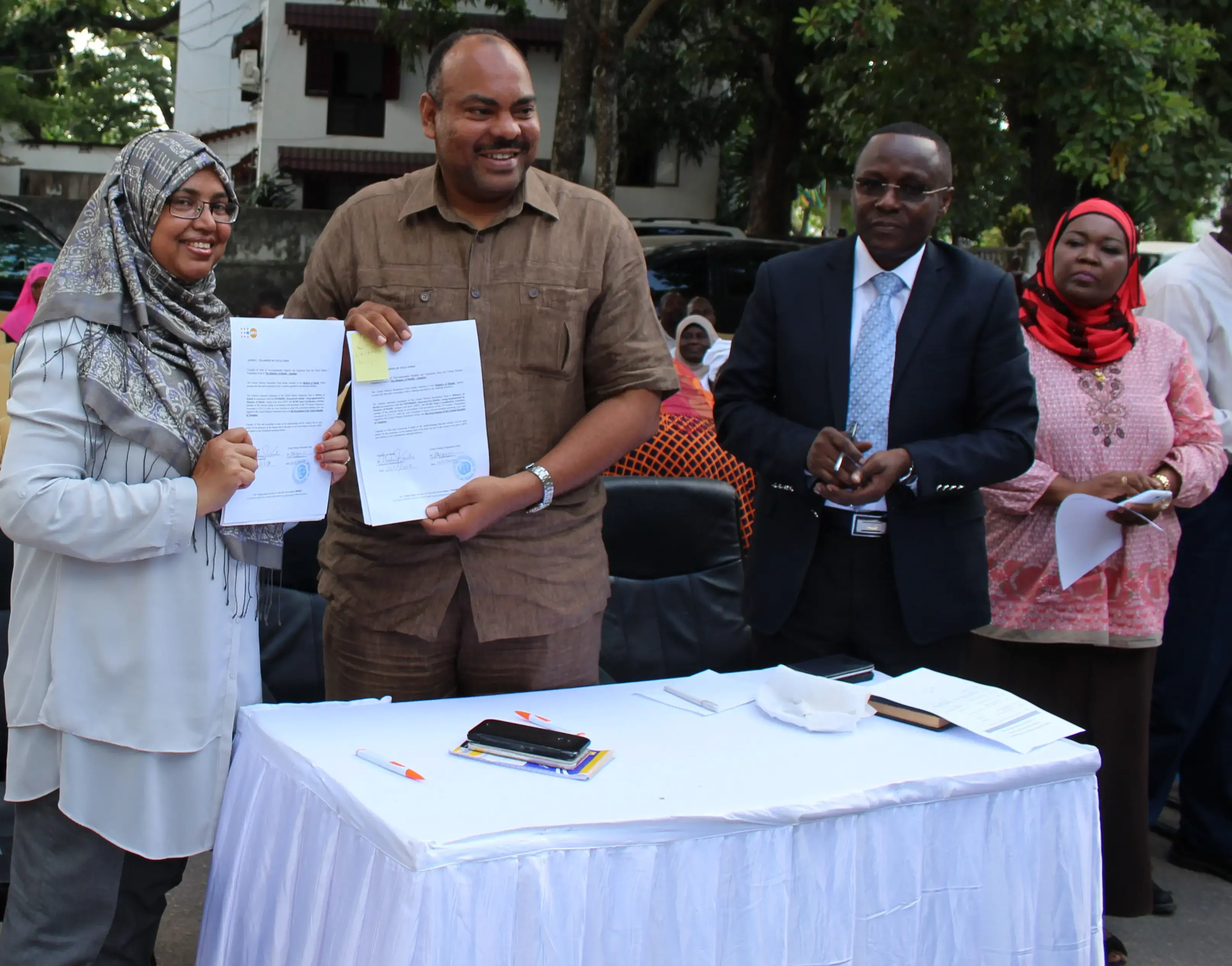Maira,* a female teacher at a government school in Zanzibar, says that menstrual hygiene is still a big challenge for girls. “Most of our female students come from poor families; many of them cannot afford to buy sanitary pads,” she says. At her school they have a small budget to buy menstrual hygiene products as well as pain relief, which helps to keep girls in school during their monthly cycle, but most of the time the budget runs out by the end of the month she says, and teachers either provide money out of their own pocket to buy sanitary supplies or girls are allowed to go home.
Menstruation is a healthy, and essential, part of the reproductive cycle, and being able to manage menstruation safely, hygienically, with confidence and with dignity is critical for girls health, education, human rights, economic development and overall gender equality. Before the COVID-19 pandemic, more than 500 million women and girls worldwide did not have what they needed to manage their menstruation, and with lockdown measures, mobility restrictions and interruptions to menstrual hygiene supplies, the COVID-19 outbreak could exacerbate this situation.
Challenges during COVID-19
Khadeeja,* a peer educator at the UNFPA-supported Rahaleo Adolescent and Youth-Friendly Centre – one of 10 centres across Zanzibar – says that the pandemic is making life even harder for the girls she knows. Most of them receive money for sanitary pads from their mothers or save from what they are given to spend at school, she says, but with many women losing their small businesses as a result of the economic fallout caused by COVID-19 and with schools currently closed, girls have no one to turn to at the moment. And the situation is made worse Khadija adds because girls cannot talk about menstruation at home and in the absence of sanitary pads are forced to use pieces of cloth. These have to be dried “out of sight, under the bed or on iron bars behind closed windows.”
Zainab* (18 years) agrees with Khadeeja and says she can talk with her mother about menstruation but not with her father, brother or any man: “It’s a woman thing, why should any man know about it?” Zainab usually asks her mother for money to buy sanitary pads or when her period starts at school asks a female teacher she trusts, but neither of these are options at the moment.
Committed to change
The COVID-19 pandemic has made menstrual health more urgent and UNFPA Tanzania is prioritizing the continuation of essential sexual and reproductive health services – as part of its support to national response efforts – including keeping the Adolescent and Youth-Friendly centres in Zanzibar open during the pandemic with physical distancing and COVID-19 infection, prevention and control measures in place.
But menstrual health management challenges will persist beyond the COVID-19 pandemic and as the world observes Menstrual Hygiene Day, UNFPA Tanzania stands with the global community to call for accelerated action and investment beyond the outbreak to end stigma and to create a world in which no woman or girl is held back because of her period by 2030.
1. FSG: Advancing Gender Equity by Improving Menstrual Health, 2020.




